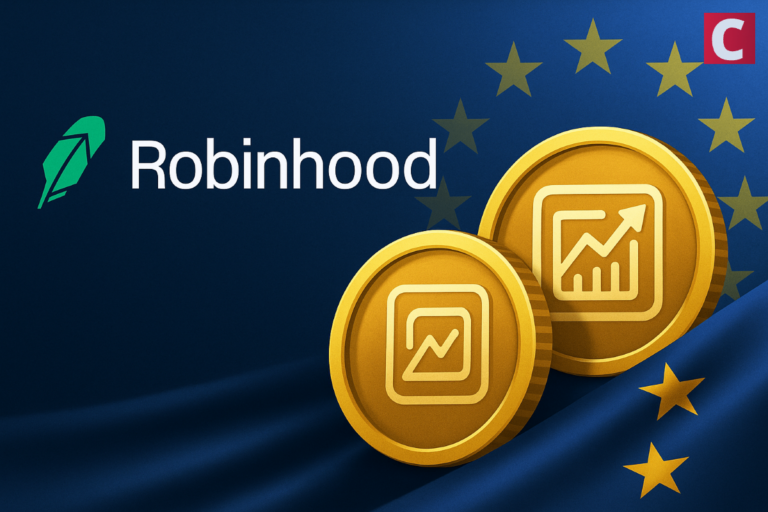Robinhood faces regulatory scrutiny in the EU after launching tokenized stocks of OpenAI and SpaceX amid growing interest in blockchain-based equities.
Commission-free trading platform Robinhood Markets is engaging in conversations with regulators in the European Union over its newly launched tokenized equities.
It aims to answer questions about whether these tokens are well-structured and if they blur the line between real equity and derivatives.
OpenAI’s Criticism of Robinhood’s Tokenized Equities
According to a Bloomberg report, Robinhood Markets is in discussions with European regulators regarding its latest tokenization effort in the region.
The company recently announced plans to offer EU users access to blockchain-based “stock tokens” of OpenAI and SpaceX, launching the product on June 30.
This tokenization initiative allows EU users to invest in shares of both public and private companies.
Unfortunately, the plan received some backlash from Sam Altman’s AI firm, emphasizing its non-involvement with the equity. Immediately, OpenAI publicly distanced itself from the product, issuing a warning that the tokens do not represent equity in the company.
These “OpenAI tokens” are not OpenAI equity. We did not partner with Robinhood, were not involved in this, and do not endorse it. Any transfer of OpenAI equity requires our approval—we did not approve any transfer.
Please be careful.
— OpenAI Newsroom (@OpenAINewsroom) July 2, 2025
These developments have placed the brokerage’s new product under legal and reputational scrutiny. The Bank of Lithuania stated it contacted Robinhood seeking “clarifications” regarding the structure of the OpenAI and SpaceX tokenized stocks.
It wants to know how the tokens are structured and whether they blur the lines enough to protect investors. To OpenAI’s claims, Robinhood CEO Vlad Tenev responded, stating that the tokenized offering provides retail investors with indirect exposure to private markets.
The CEO went on to explain that the company’s ownership stake backs the tokenized stocks through a special purpose vehicle.
Robinhood’s Tokenized US Stocks on Arbitrum
The scrutiny has not stopped Robinhood from moving on with its plans. According to on-chain data, the brokerage firm has successfully issued up to 215 stock tokens on the Arbitrum ARB $0.21 24h volatility: 0.6% Market cap: $1.19 B Vol. 24h: $93.70 M Layer 2 network.
Following the launch of U.S. stock trading on Arbitrum’s L2, the ARB price surged 9% to hit $0.35.
This bold move expands Arbitrum’s use case well beyond the confines of decentralized finance (DeFi) and gaming.
Robinhood is also still testing contracts for tokenized stocks and has dubbed one SpaceX token “Demo 1,” indicating that the pilot phase is ongoing.
Amongst its other plans, Robinhood is looking forward to offering perpetual-futures trading. In the long term, it plans to launch its own Arbitrum-based L2 blockchain.
Expansion of the Tokenization Niche
On the larger scale, Robinhood’s move with these OpenAI and SpaceX tokenized stocks indicates that the RWA sector is gaining notable traction. About a month ago, leading cryptocurrency exchange Binance conducted research into the progress of the tokenization industry.
The Real World Assets (RWA) tokenization market experienced a significant 260% growth during the first half of 2025.
It increased from $8.6 billion at the beginning of the year to $23 billion by the end of H1 2025. Much of this growth can be attributed to increasing regulatory clarity in the cryptocurrency space. Generally, this pro-crypto sentiment has driven broader adoption of blockchain-based financial products.
next